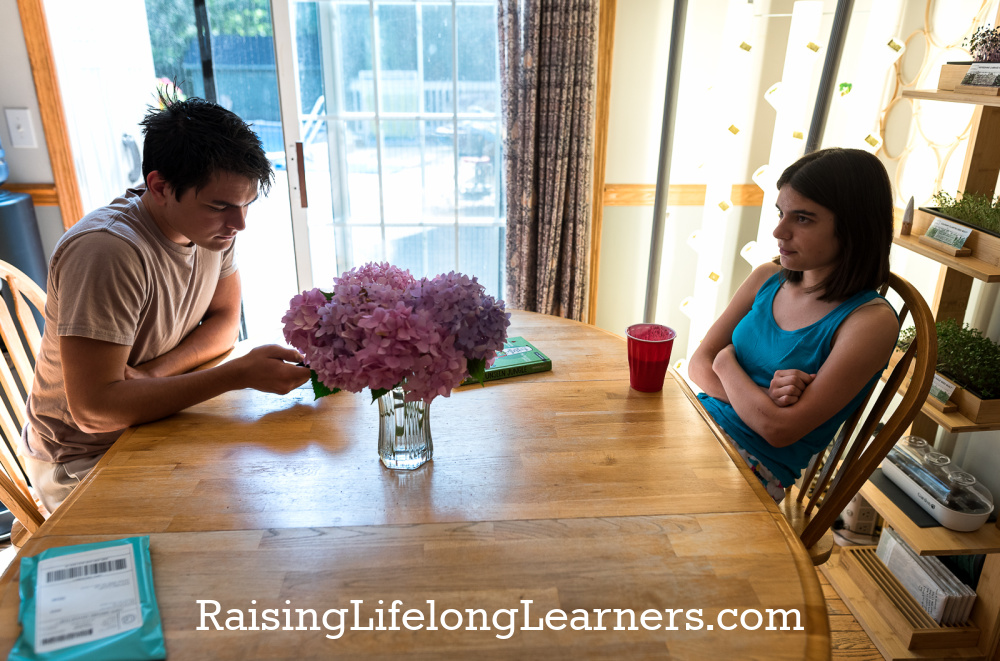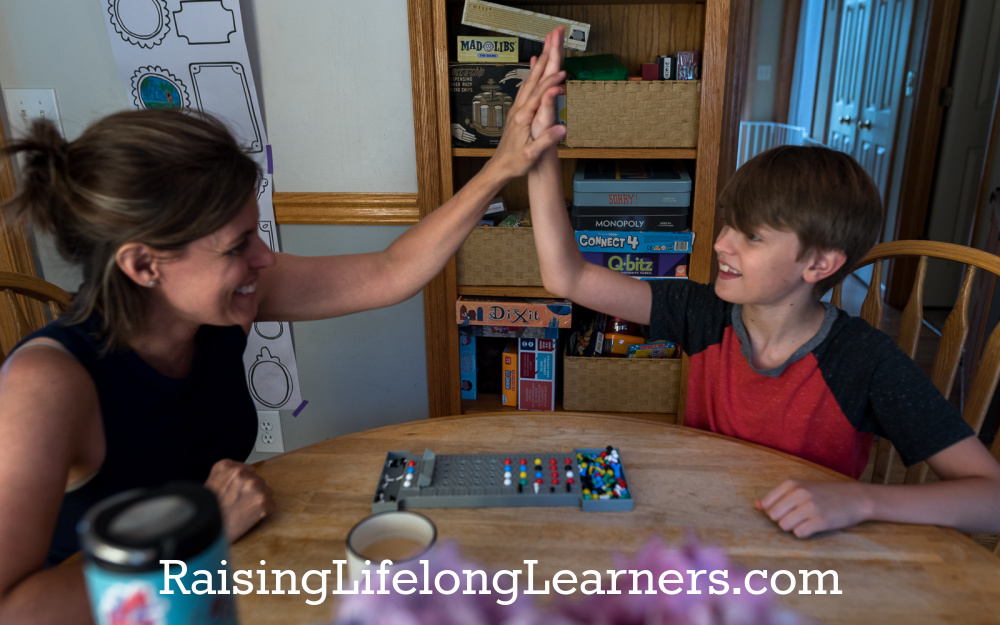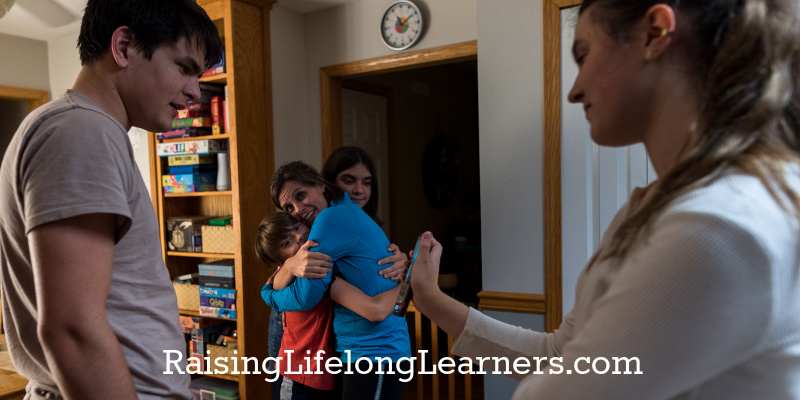Find a Place of Belonging for Your Neurodiverse Kids
Raising a neurodivergent child comes with unique challenges, including helping them feel like they belong in a world that often doesn’t understand or accommodate their differences. It can be an even bigger struggle to find acceptance when homeschooling.

So, how can parents create a supportive environment for their quirky kids to thrive?
Understanding and Empathizing with Neurodivergencies
As parents, one of the first steps in helping our neurodivergent children feel like they belong is to educate ourselves about their unique needs, challenges, and strengths. By gaining a deeper understanding of their neurodivergence, whether it’s autism, ADHD, or any other challenge, we can empathize with their experiences and provide better support when they face difficulties. Avoid dismissing their struggles with generic statements like “You’ll make friends eventually.” Instead, acknowledge and validate their experiences by saying, “I understand that your brain processes information in a unique way, and it may be challenging to find someone who truly understands you.”
Creating a Safe Environment for Communication
Open and nonjudgmental communication is crucial for our neurodivergent kids to feel comfortable expressing themselves. Encourage them to talk about their feelings, experiences, and any challenges they encounter in social situations, whether it’s at co-op, with family, or in extracurricular activities. By creating a safe space for them to share their thoughts, fears, and aspirations, we show that we value their perspectives and are ready to support them unconditionally.

Finding Social Connections Outside the Norm
When neurodivergent children struggle to find their peer group, it’s essential to encourage connections with people who appreciate and understand them. These connections might not always come from traditional social settings like co-op or neighborhood friends. Often, it’s important to seek out different avenues for connection. Whether it’s spending time with understanding family members or finding mentors who share common interests, these relationships can be invaluable for our neurodiverse children.
Supporting Social Opportunities
Though it may take time for our neurodiverse children to find their people, it’s vital to offer them opportunities to explore different social environments. This might involve joining clubs, groups, or organizations where they can interact with like-minded peers who share their passions and interests. Sports teams, drama clubs, hobby groups, or even online communities can provide platforms for them to forge connections and develop a sense of belonging.
Building a Supportive Homeschooling Environment
Homeschooling can provide a unique opportunity for neurodiverse children to learn in a safe and accommodating environment. It allows parents to tailor the curriculum to their child’s specific needs and passions, fostering self-confidence and a love for learning. Moreover, homeschooling can create a space where neurodiverse children feel accepted and valued for who they are, free from the social pressures and judgment that may arise in traditional schooling settings.

Establishing a Sense of Belonging within the Family
Our neurodiverse children should always feel that they belong within the family unit. It’s crucial for parents to create an atmosphere of unconditional love and acceptance where their unique qualities and abilities are celebrated. Emphasize that being different is not a flaw but a beautiful part of their identity. By valuing their strengths and providing unwavering support, we help them develop a strong sense of self-worth and belonging within their immediate family.
Nurturing a sense of belonging is essential for the emotional well-being and overall development of neurodiverse children. By educating ourselves about their unique needs, fostering open and empathetic communication, seeking out alternative social connections, supporting social opportunities, and building a supportive homeschooling environment, we can help our children thrive and feel a genuine sense of belonging. Remember, every child deserves to find their people, and it’s our role as parents to guide them toward that place of acceptance and connection.
Raising Lifelong Learners Episode #217 — Find a Place of Belonging for Your Neurodiverse Kids
On this episode of the podcast, we’re tackling a topic that is close to the hearts of many families raising neurodivergent children – finding a place of belonging. It can be challenging for our kids to feel like they fit in, especially in traditional educational settings. As homeschoolers, we have an opportunity to create an environment where our children can be their authentic selves while still fostering a sense of belonging.
In this episode we explore strategies and tips to help our children feel accepted and valued for who they are. Colleen shares her own experiences and insights, highlighting the importance of staying true to our children’s unique identities. She emphasizes that our kids are meant for a beautiful and wonderful purpose, and it is crucial for us to help them embrace their individuality while seeking a sense of connection.
Colleen recalls a poignant conversation with a young girl at a convention who expressed her longing for acceptance and friendship. It serves as a reminder that finding one’s tribe may take time; for some, it may come later in life.
Listen in for practical steps we can take as parents to support our neurodivergent children in finding their people.
Links and Resources from Today’s Show
- SPONSOR: CTC Math
- SPONSOR: Reading Eggs
- Raising Lifelong Learners Community – The Learners Lab
- Masterclass | Cultivating a Healthy Mindset – Raising Lifelong Learners
- Raising Resilient Sons by Collleen Kessler, M.Ed.
- Building Self-Esteem in Kids
- The Powerful Relationship Between Confidence And Learning In Our Homeschools
- 5 Tips for Helping Gifted Children Make Friends
- Why Community Is So Important For Gifted And Twice Exceptional Kids
- The Best Advice I Can Give You: Become A Student Of Your Child
- Finding Homeschool Community (for our children and ourselves)
Leave a Rating or Review
Doing so helps me get the word out about the podcast. iTunes bases their search results on positive ratings, so it really does help — and it’s easy!
-
- Click THIS link to go to the podcast main page.
- Click on View in iTunes under the podcast cover artwork.
- Once your iTunes has launched and you are on the podcast page, click on Ratings and Review under the podcast name. There you can leave either or both! Thanks so much.

